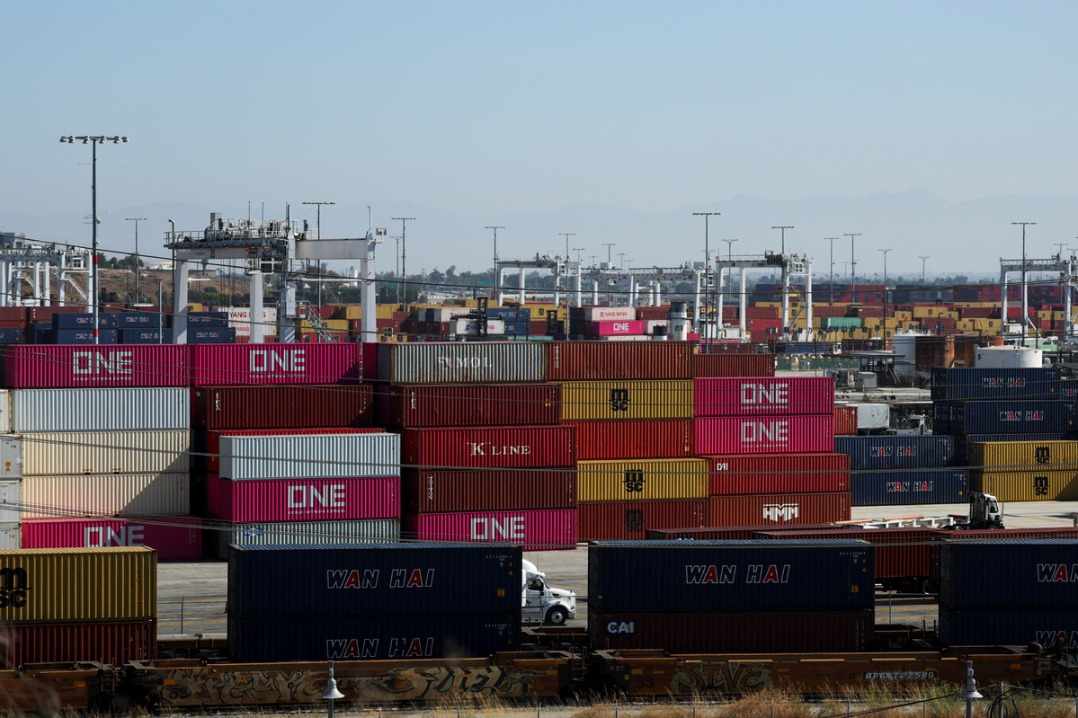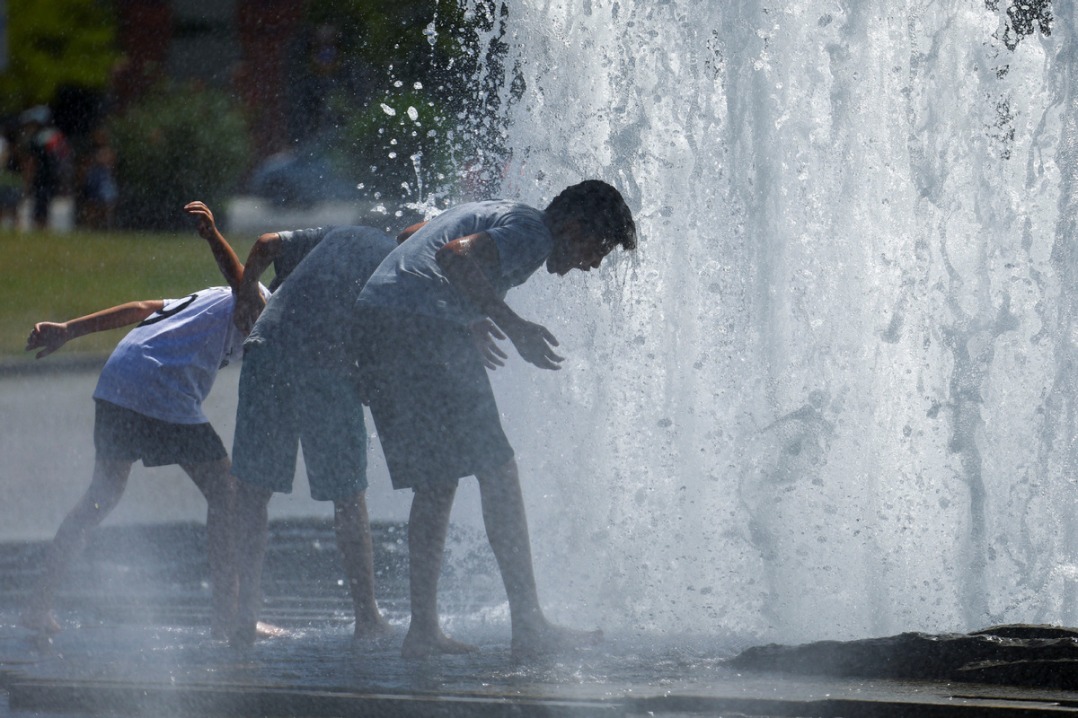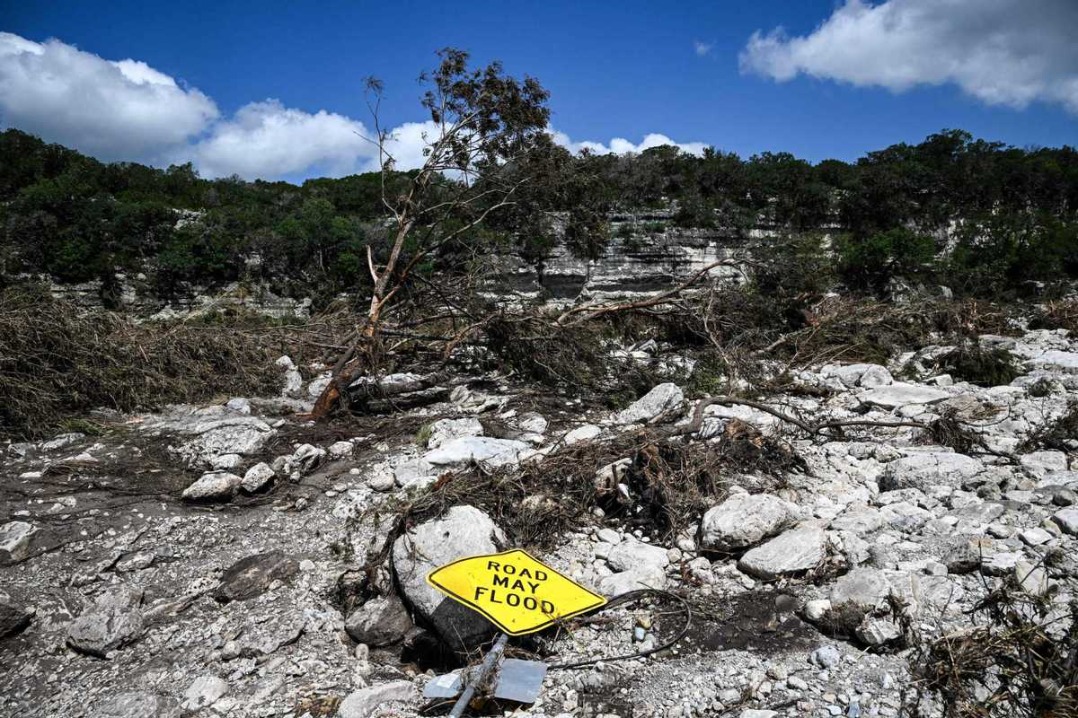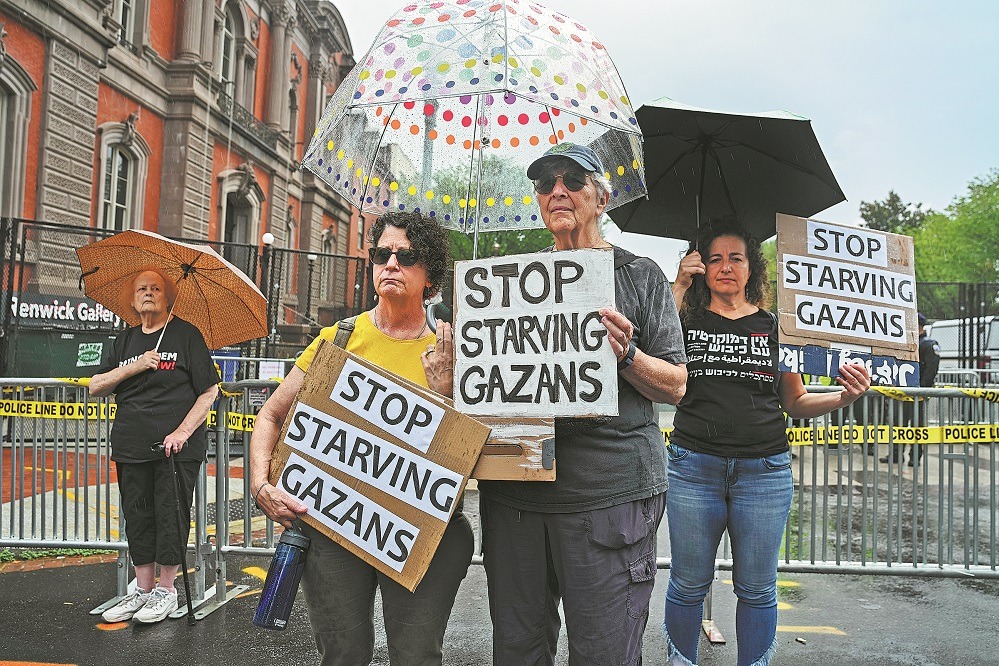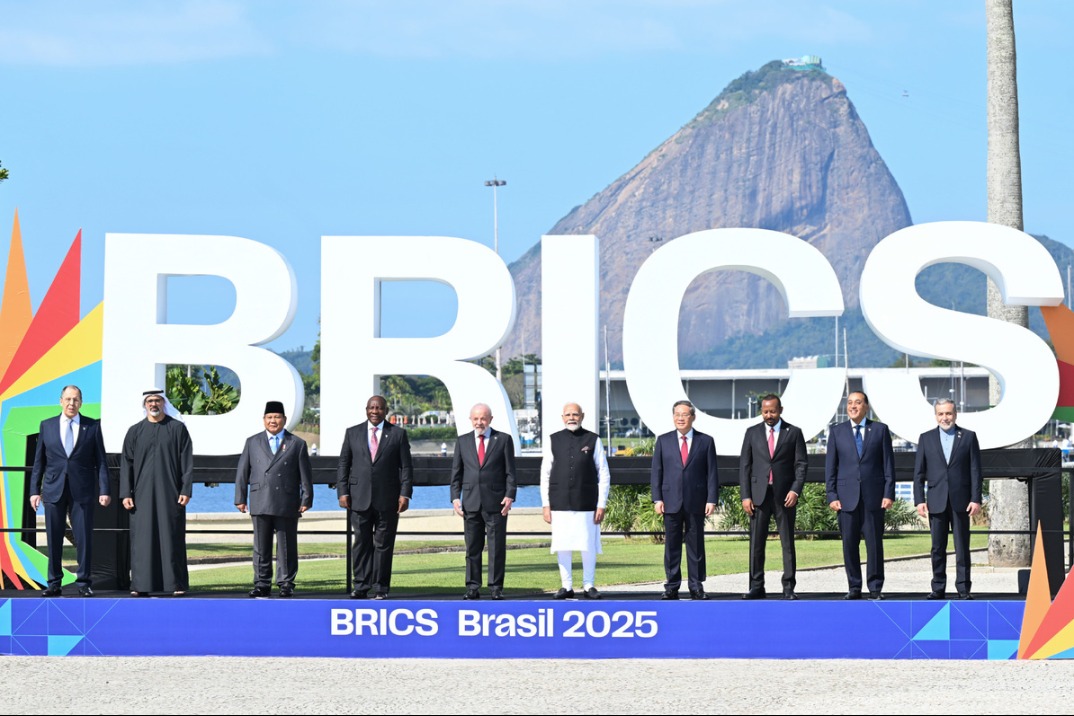EU faces unpredictable 'Trump 2.0'
Bloc struggling with new challenges, from Ukraine crisis to possible trade war, posed by US president-elect's 2nd term

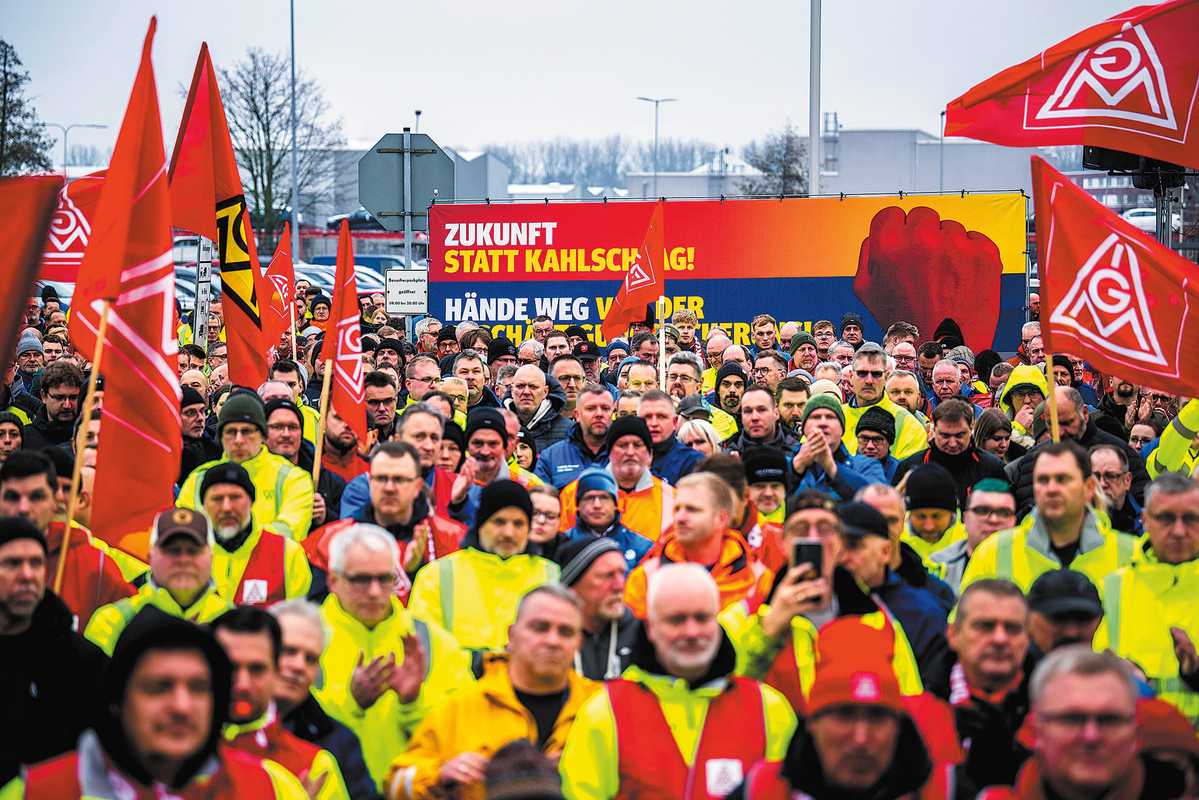
Dealing with conflict
Trump has never talked about the details of how he will end the Russia-Ukraine conflict "within 24 hours" after taking office, a pledge he repeatedly made during presidential campaigns.
After the Elysee Palace meeting, Trump wrote on social media that there should be "an immediate ceasefire and negotiations should begin".
He told NBC's Meet the Press program on Dec 8 that Ukraine will possibly receive less military aid once he takes office. He also floated the possibility for the US to quit NATO, signaling that its participation during his next term cannot be taken for granted if other members do not live up to commitments on defense spending.
In an interview with Time magazine published on Dec 12, Trump criticized Ukraine's use of US-supplied missiles deep into Russian territory, saying "it's crazy what's taking place… We are just escalating this war and making it worse".
The words likely pointed at the Joe Biden administration's rapid surge in military assistance to Ukraine before Trump assumes office.
Last month, Trump announced that Keith Kellogg, a highly decorated, retired three-star general who served in his first term, will be his special envoy for Ukraine and Russia.
With a very different US administration on the horizon, Zelensky has made a major shift. He no longer talks about his "victory plan" that he promoted in October, which was neither endorsed by the US nor the EU. He has instead expressed willingness to accept territorial concession to end the conflict with Russia in exchange for NATO membership or a security guarantee.
Changes are also happening within the EU. German Chancellor Olaf Scholz on Nov 15 talked to Russian President Vladimir Putin on the phone for the first time in two years about a "just and lasting peace".
On Dec 11, Hungarian Prime Minister Viktor Orban, who met Trump two days earlier at the president-elect's Mar-a-Lago estate in Florida, held a phone talk with Putin about a possible political and diplomatic solution to the conflict.
Polish Prime Minister Donald Tusk, a former European Council president, said on Dec 11 that peace talks on Ukraine could start in the winter.
The EU's new top diplomat, Kaja Kallas, a former Estonian prime minister, has distanced herself from those leaders, insisting that Russia does not want those negotiations.
Known as a fierce Russia hawk, Kallas visited Kyiv on Dec 1, her first day on the job, saying the EU wants Ukraine to win. She also said that Europe needs to step up aid to Ukraine if the US withdraws funding.
NATO Secretary-General Mark Rutte, a former Dutch prime minister, called for more critical ammunition and air defense for Ukraine.
"We must provide enough support to change the trajectory of this conflict once and for all," he said, without saying whether that is about gaining more bargaining power at the negotiation table — an approach seen among some EU leaders.
Rutte said on Dec 12 that NATO will set a new spending target of 3 percent of GDP by 2030, compared with the current pledge of 2 percent met by all but eight members.
"It's time to shift to a wartime mindset," he said in his first major public speech since taking office on Oct 1.
Macron and Tusk, after meeting in Warsaw on Dec 12, insisted that Europeans must be involved in security talks in "very close" coordination with the US to ensure Europe's interests are taken into account.
The Russia-Ukraine conflict, which broke out on Feb 24, 2022, has been the most devastating on the continent since World War II.
As of November, the EU and its member states had provided nearly $133 billion in financial, military, humanitarian and refugee assistance to Ukraine. The bloc has recorded some 8 million Ukrainian refugees.
It has imposed 15 rounds of sanctions against Russia, the latest one adopted on Monday targeting the so-called shadow fleet — mainly gas and oil tankers — that Russia has been using to bypass the price cap set by the G7 and the EU in late 2022.
The EU has greatly reduced its dependence on cheap Russian energy, especially the natural gas from Baltic pipelines, and has replaced it with more expensive LNG from the US and other countries.
However, the efforts have seen a reversal lately with the EU expected to import about 10 percent more LNG from Russia this year than last, according to commodities data platform Kpler. The bloc also bought fuel worth almost 20 percent more than it did last year from three major Indian refineries working on Russian crude oil, according to the Center for the Study of Democracy in Bulgaria.
The higher energy prices have worsened the crises of rising living costs and deindustrialization, especially in the EU's largest economy Germany. The Kiel Institute for the World Economy indicated that the German economy will stagnate next year following two consecutive years of contraction.
Elie Tenenbaum, director of the Security Studies Center at the French Institute of International Relations in Paris, and Leo Litra, a senior fellow at the New Europe Center in Kyiv, argued that if the upcoming US administration follows through on Trump's pledges, the outcome will have sweeping ramifications.
"Europeans — including Ukrainians — cannot be left out of the discussions that will determine their future. Resolute European countries must now come together to form a coalition, claim a seat," they wrote in Foreign Affairs magazine on Dec 3.
Mark Leonard, director of the European Council on Foreign Relations, said Europeans have every reason to fear that Trump's proposed "peace plan" for Ukraine will deprive that country of its territorial integrity and leave it demilitarized and permanently excluded from NATO.
"And NATO itself may well go 'dormant' with America radically reducing its participation and handing responsibility for the alliance's military command and resources over to the Europeans," he wrote on the council's website.

















